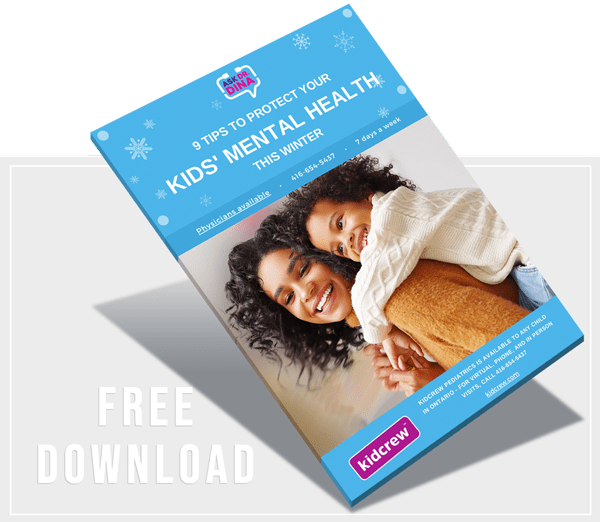Baby Eczema and dry skin can be a challenge
Eczema, or atopic dermatitis, is a common condition in babies and children. It causes the skin to become red, itchy, and inflamed. Approximately 10-20% of children have atopic dermatitis in their lifetime.
Unfortunately, eczema is a chronic or long-lasting condition, with intermittent flares over time. Luckily, many babies with atopic dermatitis see improvements in their skin over time. There is no known cure for eczema, but there are many strategies you can take to improve your baby’s dry skin.
When is baby eczema at its worst?
Eczema most commonly flares when the skin is dry, such as during the winter months. Dry patches of skin are also caused by friction and moisture, such as sweating in the summer. Ideally, the skin is kept dry and lubricated to decrease inflammation and itch.
How often should I bathe my child?
• How often to bathe a child with eczema is a debated topic, but I recommend washing every other day, as moisture and friction can irritate patches of dry skin. Keep baths short, in lukewarm water, for approximately 10-15 minutes max.
What should I bathe my child with?
- Use soap-free, fragrance-free cleansers that are gentler on dry skin.
- If your child has baby or toddler eczema, you can add oil (such as one capful of unscented bath oil) to the water. Ensure your child does not slip, and when removing your child from the bath, you are sure to avoid dropping them.
What do I do after the bath?
- After bathing, do not rub the skin to dry it. Instead, pat your child’s skin gently, leaving it moist.
- If your child uses topical steroids, apply these now to patches of dry skin, hand eczema, and face eczema. It is best to apply these ointments to rough, red, and itchy areas.
- Then apply a moisturizer or lubricant to the entire skin. Ideally, apply moisturizers before the skin gets too dry. Moist skin absorbs the medicine and moisture best.
- Moisturizers I love include Vaseline, Glaxal base cream, and other thick creams.
What medications are used to treat dry skin and baby eczema?
The most common medications doctors prescribe for dry skin and eczema are steroid ointments. Steroid ointments work far better than creams, as they provide a better barrier to decrease inflammation.
Most often, we use hydrocortisone 1% ointment on the face, underarms, and groin areas. This ointment can be used anywhere on the body, save for around the mouth and eyes. If your child’s eczema needs a higher potency steroid, we often prescribe betamethasone 0.05% or 0.1% to apply to areas of the body with persistent dry skin and inflammation. We do not use betamethasone on the face.
We recommend these ointments be applied to affected areas only, not to the entire skin.
Doctors recommend applying these ointments two times a day with a mild flair and up to three times a day for a more significant flare.
Some baby eczema benefits from the application once per day, but many require more often. It is always best to ask your healthcare provider what is recommended based on your own child’s skin condition.
Start using the medicated ointment when the skin has flares of eczema, and less use as the inflammation improves.
What are the side effects of steroid ointments?
Luckily, there are usually no side effects from steroid ointments on patches of dry skin. We use the lowest potency possible to control the inflammation and for the shortest duration possible. With diligent lubrication and moisturizing, eczema is often managed easily without the need for high potency or a long course of steroids.
What other medications are used for eczema in babies and children?
Some babies are very itchy with their eczema, and they may be prescribed an oral antihistamine. We suggest using these medicines at night to enable the baby to sleep. Once the inflammation and itch are relieved, you can discontinue the oral medication.
What can I do at home to decrease the risk of baby and toddler eczema?
- Try to keep your home cool, especially at night, to prevent your baby from sweating too much.
- Avoid using heavy blankets that can lead to sweating.
- Ensure your home is not too dry. Use a humidifier in your child’s room or increase the humidity on your home furnace.
- Some toddlers with eczema have allergies or sensitivity to dust mites. Consider dust mite covers for your child’s mattress and pillow.
Are there unique clothes my child should wear?
Clothing that touches the skin should be 100% cotton, which is least likely to cause eczema flares. Wash clothing in a mild detergent, ideally with no fragrance or dyes. Avoid using bleach or fabric softener.
Does restricting particular foods help calm baby eczema?
There is no consistent evidence that restricting particular foods helps lessen baby and toddler eczema.
Some foods such as citrus can irritate the mouth and face due to acidity coming in contact with the skin. If this happens to your child, consider applying Vaseline or another lubricant or barrier cream before feeding your child. This will act as a barrier to avoid the acidity from coming in direct contact with the skin and can limit irritation and inflammation.
If you notice the rash spreading or your child has other symptoms such as facial swelling, difficulty breathing, or gastrointestinal symptoms like vomiting, seek medical attention.
Download this free resource – 9 Tips To Help Protect Your Kids’ Mental Health
XO













